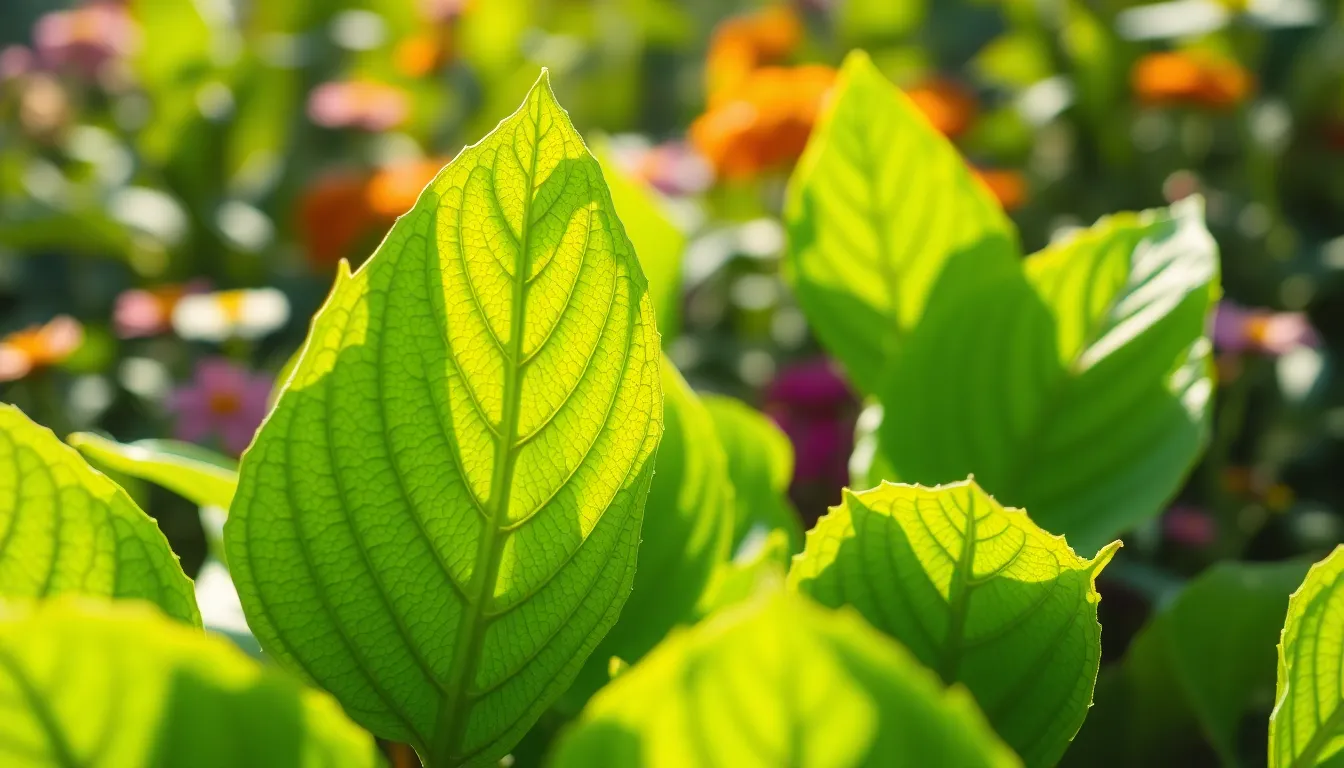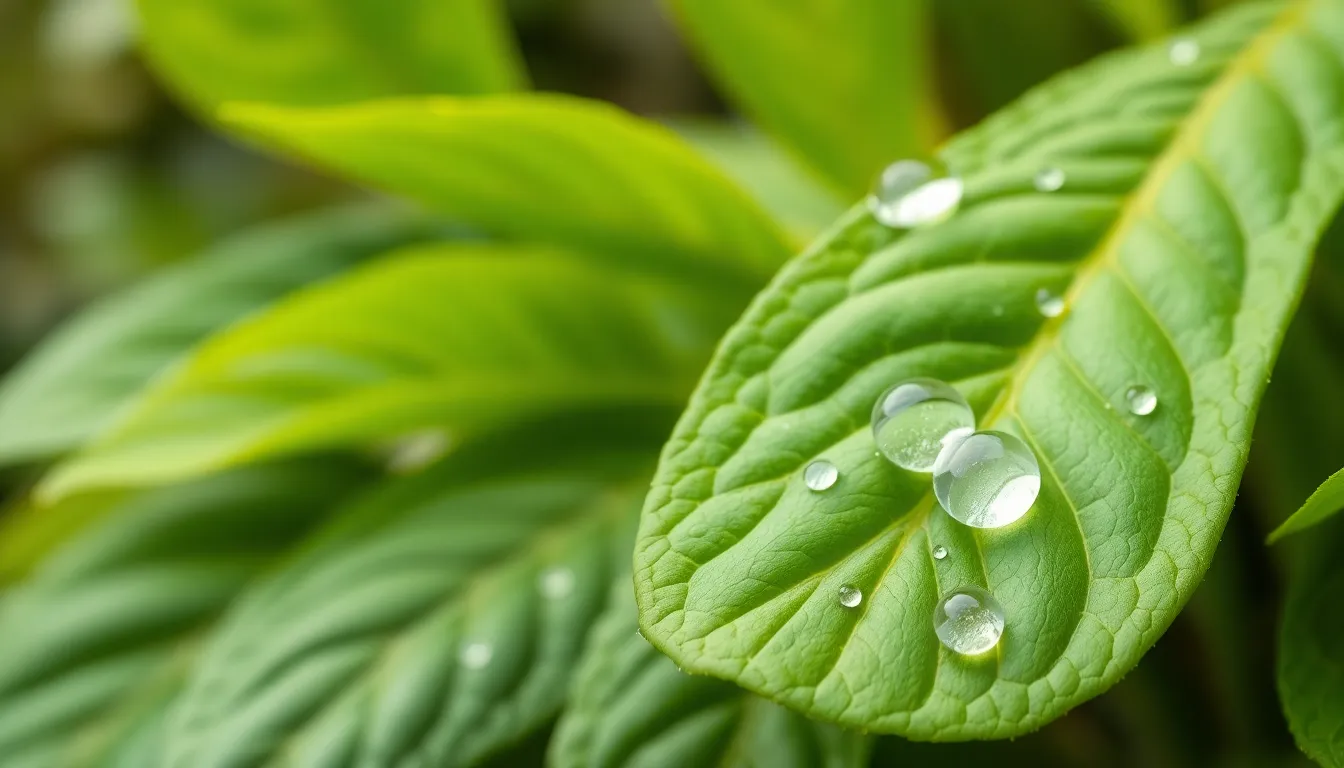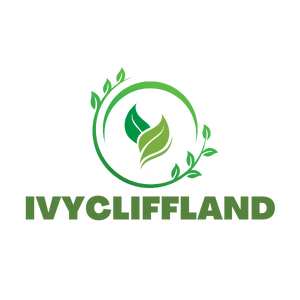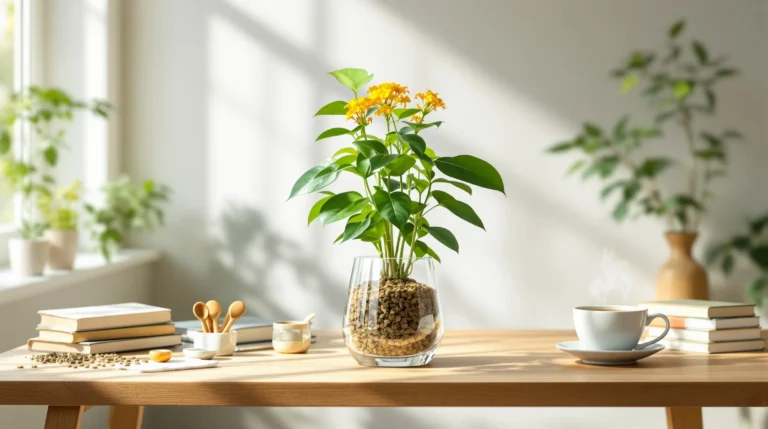
Plantain Plant Medicinal Uses: Unlock Nature’s Hidden Health Benefits Now
When most people hear “plantain,” they think of delicious fried snacks, but this unassuming green leaf is more than just a tasty treat. The plantain plant, often found in gardens and backyards, is a powerhouse of medicinal properties that can make even the toughest ailments take a backseat. Who knew that nature’s version of a Swiss Army knife could be hiding right under our noses?
Plantain Plant Medicinal Uses
Plantain plant, often overlooked, serves various medicinal purposes. Known scientifically as Plantago, it contains compounds beneficial for health. Rich in antioxidants, the leaves possess anti-inflammatory properties that can reduce swelling and pain. Commonly found in gardens and backyards, this resilient plant thrives in diverse environments.
Leaves are utilized in several forms, such as poultices, teas, and extracts. Poultices made from crushed leaves effectively treat minor wounds and insect bites. The leaves’ astringent qualities help soothe respiratory conditions like bronchitis and asthma when brewed as tea.
Plantain’s high fiber content contributes to digestive health, promoting regular bowel movements. Extracts from the seeds can assist with gastrointestinal issues, such as irritable bowel syndrome. Application of plantain leaf juice directly onto skin irritations provides relief from itching and inflammation.
In addition, studies link plantain to antimicrobial effects, showcasing its ability to combat bacteria and fungi. This makes it valuable in holistic medicine practices. Results from research indicate that the presence of flavonoids boosts its therapeutic potential, enhancing overall immune function.
Utilization of plantain varies across cultures, with some incorporating it into traditional remedies. For instance, in some regions, plantain is known for its cooling effects, making it suitable for treating sunburns or rashes. Traditional herbalists often emphasize the versatility of plantain in addressing various ailments, reinforcing its role as a natural remedy.
Nutritional Profile of Plantain

Plantain contains essential nutrients that contribute to its medicinal uses. This plant features a variety of vitamins and minerals necessary for overall health.
Vitamins and Minerals
Plantain leaves harbor significant amounts of vitamins A, C, and K. Vitamin A supports vision and immune function while vitamin C acts as an antioxidant, protecting cells. Additionally, vitamin K plays a role in blood clotting and bone health. Rich in minerals like calcium and potassium, plantain aids in maintaining bone density and regulating blood pressure. These nutrients work collaboratively to promote wellness, making plantain a valuable inclusion in diets.
Health Benefits
Consuming plantain provides various health benefits attributed to its nutritional profile. Its anti-inflammatory properties assist in alleviating pain and swelling, particularly for minor injuries. Plantain’s high fiber content facilitates digestive health by promoting regular bowel movements. Antimicrobial effects help combat infections, making this plant especially useful in traditional remedies. These benefits highlight plantain’s versatility as both a food source and a natural medicine.
Medicinal Uses of Plantain Plant
Plantain exhibits various medicinal uses that enhance health and well-being. Notable applications include skin care, respiratory health, and digestive support.
Skin Care Applications
Plantain leaves effectively treat skin conditions due to their anti-inflammatory properties. They can soothe minor burns, insect bites, and rashes. Applying a poultice made from crushed leaves provides immediate relief. Plantain’s cooling effects make it particularly useful for sunburns. The antimicrobial qualities help prevent infections in open wounds, promoting faster healing. Using plantain in salves or ointments further benefits skin health. Incorporating plantain into traditional remedies showcases its versatility in natural skin care.
Respiratory Health
Plantain serves as a remedy for respiratory conditions like bronchitis and asthma. The leaves contain mucilage, which helps soothe irritated airways. Brewing plantain leaf tea offers relief from coughing and congestion. Adding honey enhances the tea’s soothing properties for sore throats. Additionally, its anti-inflammatory effects aid in reducing respiratory inflammation. Some cultures use steam inhalation with plantain extracts to ease breathing difficulties. Incorporating plantain into respiratory health regimens boosts overall lung function.
Digestive Aid
Plantain promotes digestive health due to its high fiber content. Fiber facilitates regular bowel movements and alleviates constipation. Consuming plantain leaves in salads or teas enhances nutrient absorption. The leaves also possess mild laxative properties, helping to regulate digestion. Antimicrobial effects contribute to a balanced gut flora, reducing digestive disturbances. Traditional practices often include plantain as a digestive tonic. Utilizing plantain for digestive issues ensures a natural approach to gut health.
Traditional Uses and Remedies
Plantain plant has been used in various traditional remedies worldwide. This versatile plant boasts multiple applications that address numerous health issues.
Herbal Preparations
Common herbal preparations include poultices, teas, and tinctures. Healers often apply crushed leaves directly to minor cuts and insect bites for quick relief. Teas offer a soothing remedy for respiratory issues, while tinctures provide concentrated benefits for overall health. Combining plantain with other herbs enhances its medicinal effects, providing broader therapeutic potentials. Antioxidant-rich properties further support skin healing when used topically, reinforcing the plant’s value in herbal practices.
Regional Practices
Cultural traditions highlight diverse regional practices utilizing plantain. In many indigenous communities, fresh leaves serve as cooling agents to treat sunburns or skin irritations. Certain Asian practices incorporate plantain in detoxifying treatments, promoting digestive harmony. African herbalists recognize its potential for managing respiratory ailments, often recommending steam inhalation. Each region emphasizes unique applications, showcasing plantain’s adaptability and widespread significance in traditional medicine.
Scientific Research on Plantain Plant
Scientific research highlights the medicinal uses of the plantain plant, supporting its application in traditional remedies. Various studies validate its anti-inflammatory, antimicrobial, and antioxidant properties.
Studies Supporting Medicinal Uses
Clinical studies demonstrate that plantain leaves exhibit significant anti-inflammatory effects, which aid in reducing pain associated with minor wounds and insect bites. Research has shown that extracts from these leaves can alleviate symptoms of respiratory conditions like bronchitis and asthma, making them effective when brewed as tea. Findings published in journals indicate plantain’s ability to enhance digestive health by promoting healthy bowel movements thanks to its high fiber content. Antimicrobial properties linked to the plant support its use in treating infections and accelerating the healing process of skin injuries.
Limitations and Considerations
Despite its numerous benefits, certain limitations exist regarding plantain’s medicinal uses. Some individuals may experience allergic reactions to the plant, necessitating cautious usage. Research does not cover all potential side effects extensively, leaving gaps in understanding its long-term effects. Quality control poses another challenge, as the potency of plantain-based products can vary significantly. Careful sourcing of plantain and proper preparation methods are crucial for maximizing benefits. Always consult healthcare professionals before incorporating plantain into clinical treatment plans, especially for serious health issues.
Conclusion
The plantain plant stands out as a remarkable natural remedy with a wealth of medicinal uses. Its rich nutritional profile and diverse applications in traditional medicine highlight its importance in promoting health and well-being. From treating skin conditions to supporting respiratory health and aiding digestion, plantain proves to be a versatile ally in holistic care.
As interest in natural remedies continues to grow, plantain’s potential remains significant. However, it’s crucial to approach its use with care. Consulting healthcare professionals before integrating plantain into health regimens ensures safety and effectiveness. Embracing this powerful plant can lead to a healthier lifestyle, making it a valuable addition to any herbal medicine cabinet.



